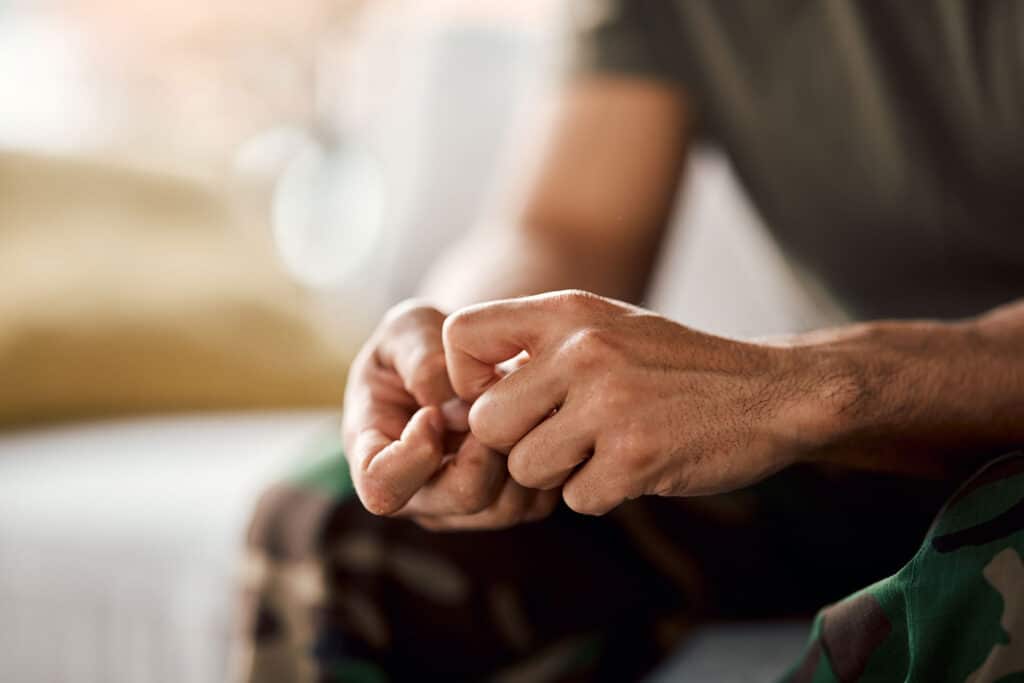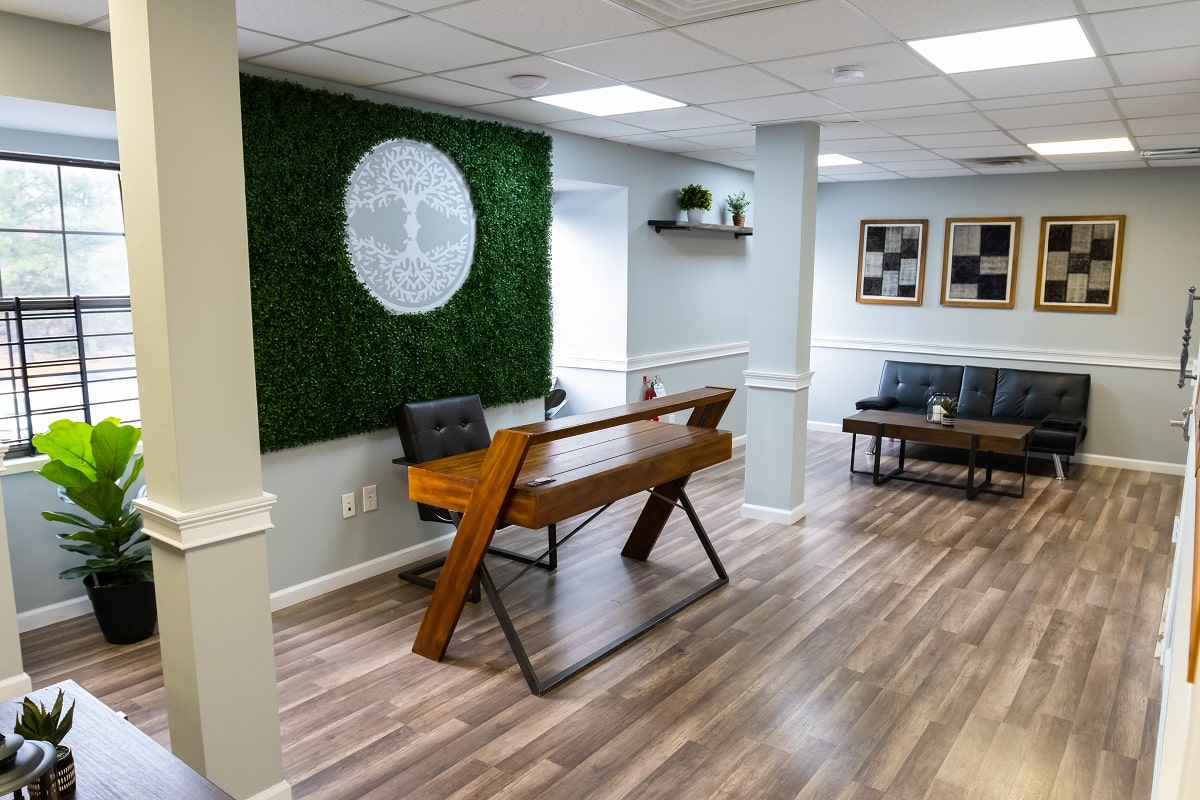Addiction is a chronic condition that comes in two forms: behavioral addiction and substance use disorder, such as opioids, alcohol, and stimulants. In all its forms, addiction affects most aspects of your life, including relationships, career, and overall health.
Medical experts define addiction as a brain disorder. This is because it causes functional changes to the brain circuits responsible for feelings of pleasure, reward, stress, and inhibition.

Nevertheless, addiction can be treated with the proper therapeutic methods and techniques.
In this post, we’ll go over all the treatments at Garden State Treatment to help you conquer addiction and embark on a new path to recovery.
Table of Contents
- 1 Understanding Addiction
- 2 The Impact of Addiction on Individuals, Families, and Communities
- 3 Overview of Garden State Treatment Center
- 4 Exploring Treatment Options at Garden State
- 5 Success Stories and Testimonials
- 6 Conclusion
Understanding Addiction
Before discussing the various addiction treatments, let’s start by understanding what addiction is and how it affects families and communities.
Addiction Explained
The term ‘addiction’ derives from the Latin word meaning ‘bound to’ or ‘enslaved by.’
Addiction is a complex disease involving physical and psychological dependence on a substance or behavior. Drugs are among the most common addictive substances. They include prescription medication, street drugs like cocaine, heroin, methamphetamine, alcohol, and tobacco products such as cigarettes or vaping devices.
Addiction is characterized by compulsive and uncontrollable cravings despite negative consequences. Individuals who struggle with addiction will continue to engage in the addictive behavior even when it causes harm or disrupts their relationships, work, or health.
The Cycle of Addiction
Experimentation: The cycle of addiction typically starts with experimentation. This is when an individual tries a substance or behavior for the first time. In this stage, addiction may not develop.
Tolerance: Continued use leads to tolerance. Tolerance occurs when the body adapts to the substance and requires more significant amounts to achieve the initial effect.
Dependence: As a person increases their intake, they eventually develop dependence. Dependence means that without the substance, the body experiences withdrawal symptoms like nausea, irritability, and headaches. This chemical dependency is what makes addiction a chronic disease.
Addiction: At this point, individuals may experience a loss of control over their use. They continue to seek out and use the substance despite adverse consequences.
Simply put, addiction can be described by the four Cs:
- Craving
- Loss of Control of the frequency of use or the amount
- Compulsion to use
- Repeated use despite the Consequences
Over time, addiction changes how the brain functions. It can disrupt the reward circuit, leading to a decrease in dopamine levels. This is why individuals with addiction may continue to use substances or engage in behaviors even though they no longer enjoy them. They are seeking to restore their dopamine levels to feel pleasure again. This dysregulation of the reward circuit is also what makes addiction a relapsing disease.

Signs and Symptoms of Addiction
When someone becomes dependent on drugs, they may experience intense withdrawal symptoms when trying to quit. This is because the brain has adapted to the presence of these substances and struggles to function without them.
As with any chronic disease, early intervention is key. Recognizing signs of addiction and seeking help can prevent the cycle from progressing to full-blown addiction. However, intervention may be difficult as individuals in the midst of addiction are often not receptive to change.
Some signs and symptoms of addiction may include:
- Physical symptoms: Unexplained weight loss or gain, changes in appearance such as bloodshot eyes or skin lesions, and frequent illnesses.
- Loss of control: Using larger amounts or for longer periods than intended, difficulty stopping despite wanting to quit, and experiencing physical or emotional symptoms when trying to stop using the substance
- Social isolation: Withdrawing from friends and family who do not engage in the same behavior, preferring to spend time alone or with others who use the substance.
- Financial problems: Spending excessive amounts of money on substances and experiencing financial difficulties as a result.
- Neglecting responsibilities: Prioritizing obtaining and using the substance over work, school, and other essential obligations.
- Changes in behavior and mood: Being irritable, secretive, or defensive. Changes in sleeping patterns and appetite.
- Continued use despite negative consequences: Choosing to continue usage despite its negative impact on relationships, work, health, or legal matters, or using substances despite potential harm to oneself or others physically, emotionally, or socially.
- Loss of interest in activities and hobbies: Activities and hobbies that were once enjoyed are no longer prioritized or participated in due to drug use.
If you or a loved one displays any of these signs and symptoms, it may be time to seek help for drug addiction. Addiction is a treatable disease, and seeking professional help can significantly improve your chances of recovery.
The Impact of Addiction on Individuals, Families, and Communities
Drug addiction not only affects the individual struggling with substance use, but it also has a ripple effect on their families and communities. Family members may feel helpless, frustrated, and scared for their loved one’s well-being. They may also experience financial strain, conflict, and even trauma due to their loved one’s addiction.
Adolescents who struggle with drug addiction face unique challenges as well. They may experience difficulties in school, relationships, and overall development as they navigate the complexities of addiction.
Furthermore, drug addiction can have a detrimental impact on communities. It can lead to increased crime rates, strain on healthcare resources and contribute to the breakdown of families and social structures.
Overview of Garden State Treatment Center

Reputation
Since it opened its doors to individuals in need of addiction and mental health services, Garden State Treatment Center has been at the forefront of providing high-quality treatment options and has earned recognition for excellence in substance abuse and behavioral health treatment from the Joint Commission.
Team
As a leading treatment provider, this facility offers tailored care to meet each individual’s unique needs. From licensed therapists to experienced medical professionals, the team at Garden State Treatment Center is committed to help individuals overcome their addiction and achieve long-term recovery. Their approach is rooted in evidence-based practices and follows guidelines set by reputable organizations such as the National Institute on Drug Abuse (NIDA). The center’s experienced team of health professionals provides a multidisciplinary team (MDT) approach that allows them to collaborate and share ideas. This team has created a treatment strategy that comprises evidence-based therapy and the 12-step philosophy.
Services
Garden State Treatment Center provides diverse services, ensuring a comprehensive and holistic approach to alcohol and substance abuse treatment. Our continuum level of care is designed to cater to the unique needs of each individual, promoting lasting recovery and well-being.
Location
Nestled in New Jersey’s scenic countryside, this treatment facility, just 40 miles northeast of the airport, is known for its inviting and comfortable atmosphere. The serene surroundings and fresh air create an ideal setting for self-reflection and introspection, which are crucial components of addiction recovery.
Exploring Treatment Options at Garden State
One of the highlights of the Garden State Treatment Center is the wide array of treatment services it offers clients. While there’s no inpatient or residential treatment program, the center does provide outpatient treatment, dual diagnosis, partial and intensive outpatient care.

Garden State Treatment Center understands that addiction recovery is a lifelong process requiring dedication, commitment, and support. That’s why our programs are designed to support individuals struggling with alcohol use or any other substance abuse disorder to find treatment options and to provide them with the tools and resources needed to help overcome their addiction.
Here’s a comprehensive dive into the treatment programs provided by the team of medical professionals at Garden State:
Medical Detoxification:
Medical detoxification is often recommended for those suffering from mild to moderate substance abuse disorders. This program focuses on safely managing and monitoring withdrawal symptoms while providing compassionate care to individuals struggling with drug and alcohol use. While the symptoms may not be life-threatening, they can cause severe discomfort. Through this medically monitored detox program, individuals can clear their bodies of the abused substance to restore it to its natural state.
Medication-Assisted Treatment:
For those struggling with opioid addiction, we offer medication-assisted treatment (MAT) as part of our comprehensive approach. MAT combines therapy and FDA-approved medication such as buprenorphine, which helps to reduce cravings; methadone, which blocks the effects of opioids; and naltrexone, which prevents relapse. Our medical professionals carefully monitor clients throughout their MAT journey to ensure safety and effectiveness.
Short-Term Residential Treatment:
Although there isn’t an inpatient or residential program available, there may be instances where hospitalization becomes necessary. In such cases, the center can offer clients a short-term residential program, typically lasting up to 30 days. This program is designed to identify underlying health conditions contributing to drug and alcohol use and provides intensive treatment to address them.
Intensive Outpatient Program:
Designed for individuals requiring ongoing support but not needing 24-hour care, Garden State’s intensive outpatient program (IOP) offers structured therapy sessions three times a week. This program allows clients to continue attending work or school while receiving treatment.
Psychotherapy Methods
Also known as talk therapy, psychotherapy allows individuals to express their thoughts and emotions to a licensed and trained therapist.

Garden State Treatment psychotherapy methods include:
Cognitive Behavioral Therapy (CBT)
Cognitive Behavioral Therapy (CBT) works to transform negative thought patterns into more positive ones. The goal is to help clients improve their emotions and foster positive development.
Dialectical Behavioral Therapy (DBT)
Dialectical Behavioral Therapy (DBT) is used primarily to treat various psychiatric conditions, such as personality disorders and suicidal tendencies. It teaches individuals how to overcome destructive behaviors and strong emotional reactions.
Motivational Interviewing (MI)
Motivational Interviewing (MI) is a counseling technique designed to help individuals find the motivation to improve their lives. It’s carried out with the help of four central principles, represented by the acronym PACE:
- Partnership
- Acceptance
- Compassion
- Evocation
Group Therapy
Peer support is essential for individuals in recovery, which is why we offer group therapy sessions as part of our treatment programs. Facilitated by a trained therapist, there are two types of group therapy: big groups and small groups.
Big Groups: The former allows for a more diverse setting. It provides individuals with a wide range of perspectives, which offers a more significant dynamic within the therapy session.
These support groups provide a sense of community and understanding for clients, as they can connect with others who are going through similar experiences. Participating in self-help groups such as Alcoholics Anonymous or Narcotics Anonymous can also be a valuable addition to treatment as it leads to long-term support and relapse prevention.
Small Groups: On the other hand, small groups provide individuals with a better opportunity to voice their feelings and share their thoughts with fellow addicts. It gives each participant more time to open up about their struggles while boosting empathy for other people’s battles. As a result, small groups help foster a strong support system they can rely on during recovery.
Family Therapy
Family therapy provides participants with a safe space to express their thoughts and feelings about addiction. It includes not just the individual struggling with addiction, but also their family members.
The main objective of family therapy is to improve communication and enhance relationships among family members. Family therapy serves as a critical component of the recovery process by addressing deep-rooted issues that may have contributed to addiction.
Having loved ones participate in therapy sessions can significantly benefit individuals struggling with addiction. It allows for a better understanding of the person’s struggles and promotes empathy from family members. Additionally, it helps create a supportive and understanding environment for their loved ones to heal.
Dual Diagnosis Treatment
The dual diagnosis program is a comprehensive treatment created for individuals struggling with mental health issues while suffering from substance abuse disorders.
At Garden State, we recognize the need to address both substance abuse and mental health issues for a successful recovery. Treating both conditions simultaneously is crucial in preventing relapse and promoting long-term recovery. Our dual diagnosis program offers a specialized treatment plan for co-occurring disorders, addressing the underlying causes of addiction.
Success Stories and Testimonials

The facilities and staff at Garden State Treatment Center are constantly receiving high praise. Here are a few personal stories from past clients:
“This place is so much more than a treatment center! The staff is there to help you in any way you need.” – Jen.
“The clinical staff coupled with the tech staff are unique; everyone in their position goes above and beyond to help the clients and get to know each one on an individual basis.” – Steve.
“The team there gave me hope for my future and nurtured the foundation I needed to move forward in my recovery. With their love and support, I arrived at the decision to live a sober life.” – Sarah.
“My experience at this facility was amazing.” – Mike
“Great place, the best staff I ever encountered.” – Lily
These are just a few examples of the countless success stories that have come out of Garden State Treatment Center. Our mission is to provide the best and most effective treatment for addiction, and we are proud to see our clients succeed in their recovery journeys.
Conclusion
In conclusion, addiction treatment at Garden State Treatment Center is not only effective but also personalized, compassionate, and supportive. The various treatment programs cater to individual needs and provide a safe and comfortable environment for recovery.
If you or someone you know is in need of addiction treatment, Garden State Treatment Center is the perfect place in New Jersey to receive the support and care needed for a successful recovery journey.
Let Garden State Treatment Center be your partner in overcoming substance abuse and living a fulfilling life in recovery. Contact us today to learn more about addiction treatment near you.



